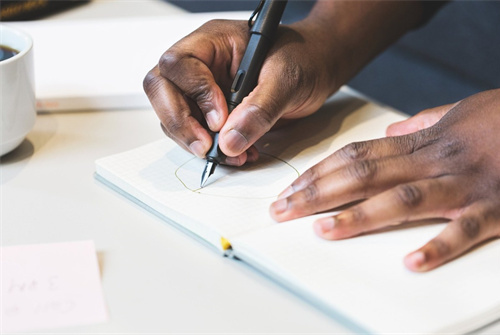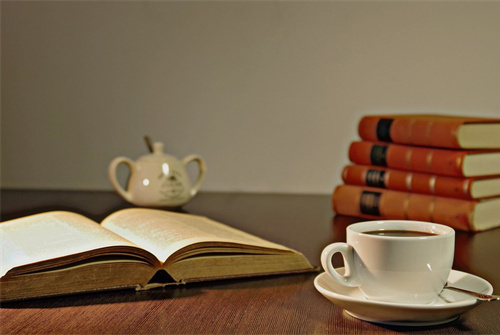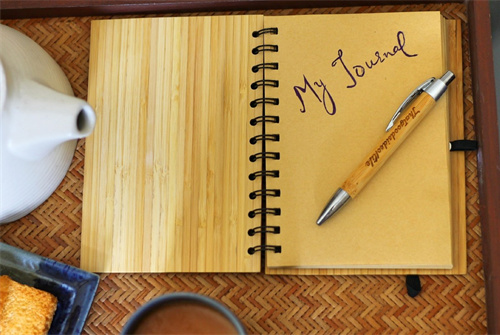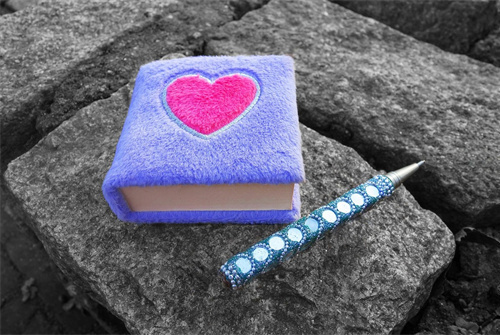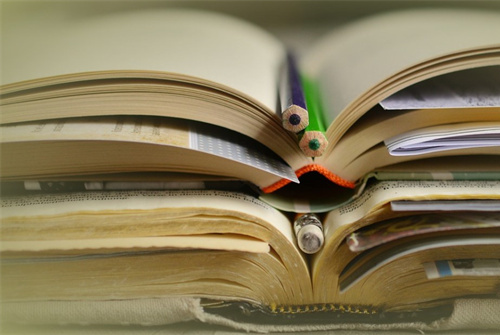打燈籠的文案短句聚集90句

關(guān)于元宵節(jié)燈籠的詩(shī)句
紫竹聽曉 一 元宵佳節(jié)打燈籠,萬(wàn)朵煙花綠帶紅。以下是一句話語(yǔ)錄網(wǎng)為大家分享的`關(guān)于元宵節(jié)的詩(shī)詞,大家一起去欣賞一下吧!
《上元夜》
崔液(唐)
玉漏銅壺且莫催,鐵關(guān)金鎖徹夜開;
誰(shuí)家見月能閑坐,何處聞燈不看來(lái)。
《正月十五夜》
蘇道味(唐)
火樹銀花合,星橋鐵鎖開,
燈樹千光照。明月逐你來(lái)。
游妓皆穠李,行歌盡落梅。
金吾不禁夜,玉漏莫相催。
《元夕無(wú)月》
丘逢甲(清)
三年此夕無(wú)月光,明月多應(yīng)在故鄉(xiāng)。
欲向海天尋月去,五更飛夢(mèng)渡鯤洋。
《汴京元夕》
李夢(mèng)陽(yáng)(明)
中山孺子倚新妝,鄭女燕姬獨(dú)擅場(chǎng)。
齊唱憲王春樂府,金梁橋外月如霜。
《元夕影永冰燈》
唐順之(清)
正憐火樹千春妍,忽見清輝映月闌。
出海鮫珠猶帶水,滿堂羅袖欲生寒。
燭花不礙空中影,暈氣疑從月里看。
為語(yǔ)東風(fēng)暫相借,來(lái)宵還得盡余歡。
《元夕于通衢建燈夜升南樓》
隋煬帝(隋)
法輪天上轉(zhuǎn),梵聲天上來(lái);
燈樹千光照,花焰七枝開。
月影疑流水,春風(fēng)含夜梅;
燔動(dòng)黃金地,鐘發(fā)琉璃臺(tái)。
《生查子元夕》
(宋)歐陽(yáng)修
去年元夜時(shí),花市燈如晝。
月到柳梢頭,你約黃昏后。
今年元夜時(shí),月與燈依舊。
不見去年你,淚濕春衫袖。
《青玉案元夕》
(宋)辛棄疾
東風(fēng)夜放花千樹,更吹落,星如雨。
寶馬雕車香滿路,鳳蕭聲動(dòng),壺光轉(zhuǎn),一夜魚龍舞。
蛾兒雪柳黃金縷,笑語(yǔ)盈盈暗香去。
眾里尋他千百度,驀然回首,那你卻在,火闌珊處。
《京都元夕》
(元)元好問
袨服華妝著處逢,六街燈火鬧兒童。
長(zhǎng)衫我亦何為者,也在游你笑語(yǔ)中。
《折桂令元宵》
(元)失名
愛元宵三五風(fēng)光,月色嬋娟,燈火輝煌。
月滿冰輪,燈燒陸海,你踏春陽(yáng)。
三美事方堪勝賞,四無(wú)情可恨難長(zhǎng)。
怕的是燈暗光芒,你靜荒涼,角品南樓,月下西廂。
關(guān)于元宵節(jié)看燈籠
摘要:元宵節(jié)是農(nóng)歷正月的第十五天,這是新年的第一次滿月,象征著和睦和團(tuán)圓。元宵節(jié)是春節(jié)的一個(gè)重要組成部分,也象征著春節(jié)長(zhǎng)假的正式結(jié)束。Lantern Festival falls on the fifteenth day of the first lunar month. This is the first full moon of the new year, symbolizing unity and perfection. Lantern Festival is an important part of Spring Festival , and marks the official end of the long holiday.
Lantern Festival is a China’s traditional festival. It is celebrated on the fifteenth day of the first month of the lunar year.
I,antern Festival is one of the biggest holidays in China. Several days before Lantern Festival, people begin to make lanterns. Lanterns are made in the shape of different animals, vegetables, fruits and many, other things. While making lanterns people usually write riddles on lanterns. On the eve of Lantern Festival, all the lanterns are hung up.
On Lantern Festival people go outside to have a look at the lanterns and guess the riddles on the lanterns. Perhaps you call see some wonderful folk performances,Dragon Dance and Yangko. Everything is very interesting and everyone is very happy. Our life is rich and varied.
元宵節(jié)英語(yǔ)作文:元宵節(jié)
The first day of the Lunar New Year is "the welcoming of the gods of the heavens and earth."Many people abstain from meat on the first day of the new year because it is believed that this will ensure long and happy lives for them.
On the second day, the Chinese pray to their ancestors as well as to all the gods. They are extra kind to dogs and feed them well as it is believed that the second day is the birthday of all dogs.
The third and fourth days are for the sons-in-laws to pay respect to their parents-in-law.
The fifth day is called Po Woo. On that day people stay home to welcome the God of Wealth. No one visits families and friends on the fifth day because it will bring both parties bad luck.
On the sixth to the 10th day, the Chinese visit their relatives and friends freely. They also visit the temples to pray for good fortune and health.
The seventh day of the New Year is the day for farmers to display their produce. These farmers make a drink from seven types of vegetables to celebrate the occasion. The seventh day is also considered the birthday of human beings. Noodles are eaten to promote longevity and raw fish for success.
On the eighth day the Fujian people have another family reunion dinner, and at midnight they pray to Tian Gong, the God of Heaven.
The ninth day is to make offerings to the Jade Emperor.
The 10th through the 12th are days that friends and relatives should be invited for dinner. After so much rich food, on the 13th day you should have simple rice congee and mustard greens (choi sum) to cleanse the system.
The 14th day should be for preparations to celebrate the Lantern Festival which is to be held on the 15th night.
元宵節(jié)作文:The Lantern Festival
The Lantern Festival falls on the 15th day of the 1st lunar month, usually in February or March in the Gregorian calendar. As early as the Western Han Dynasty (206 BC-AD 25), it had become a festival with great significance.
This day's important activity is watching lanterns. Throughout the Han Dynasty (206 BC-AD 220), Buddhism flourished in China. One emperor heard that Buddhist monks would watch sarira, or remains from the cremation of Buddha's body, and light lanterns to worship Buddha on the 15th day of the 1st lunar month, so he ordered to light lanterns in the imperial palace and temples to show respect to Buddha on this day. Later, the Buddhist rite developed into a grand festival among common people and its influence expanded from the Central Plains to the whole of China.
Till today, the lantern festival is still held each year around the country. Lanterns of various shapes and sizes are hung in the streets, attracting countless visitors. Children will hold self-made or bought lanterns to stroll with on the streets, extremely excited.
"Guessing lantern riddles" is an essential part of the Festival. Lantern owners write riddles on a piece of paper and post them on the lanterns. If visitors have solutions to the riddles, they can pull the paper out and go to the lantern owners to check their answer. If they are right, they will get a little gift. The activity emerged during people's enjoyment of lanterns in the Song Dynasty (960-1279). As riddle guessing is interesting and full of wisdom, it has become popular among all social strata.
People will eat yuanxiao, or rice dumplings, on this day, so it is also called the "Yuanxiao Festival." Yuanxiao also has another name, tangyuan. It is small dumpling balls made of glutinous rice flour with rose petals, sesame, bean paste walnut meat, dried fruit, sugar and edible oil as filling. Tangyuan can be boiled, fried or steamed. It tastes sweet and delicious. What's more, tangyuan in Chinese has a similar pronunciation with "tuanyuan”, meaning reunion. So people eat them to denote union, harmony and happiness for the family.
元宵節(jié)英文介紹:
自漢朝(公元前206年—公元221年)起,元宵節(jié)就已成為了中國(guó)新年慶祝活動(dòng)中的一部分了。一般農(nóng)歷的正月十五為元宵節(jié),這一天也標(biāo)志著新年慶祝活動(dòng)的結(jié)束。
The Lantern Festival has been part of Chinese New Year celebrations since the Han Dynasty (206 BC- 221 AD). Usually held on the 15th day of the first month of the lunar calendar, it marks the end of New Year festivities.
It is said that the holiday evolved from an ancient Chinese belief that celestial spirits could be seen flying about in the light of the first full moon of the lunar calendar. To aid them in their search for the spirits they used torches. These torches gave way to lanterns of every shape, size and colour.
The Lantern Festival is also popularly referred to as the Chinese Valentine’s Day because in days of old it gave girls and boys a rare chance to go out in the evening and mingle. Today, lantern festivals are held each year in China, Hong Kong, Singapore and Taiwan to mark the end of Chinese New Year celebrations. Competitions are held to select the best lanterns.
The lanterns
The lanterns come in all shapes and sizes. Some are created in the form of animals, insects, flowers, people or even machines or buildings. Others depict scenes from popular stories teaching filial piety and traditional values. A favourite subject is the zodiac animal of the year - which in 2024 will be the horse.
Lantern riddles (cai deng mi)
Part of the lantern festival tradition involves a game to guess riddles attached to the lanterns. In the old days the riddles were obscure literary allusions to the Chinese classics and so were mainly the preserve of the educated classes.
Special foods
Like most Chinese festivals, the Lantern Festival has its own special food, called "tang yuan". These are round, glutinous rice dumplings with sweet or spicy fillings. The dumplings are said to symbolise both the first full moon and family unity and completeness.
Entertainment
Stilt-walking, drumming and dragon and lion dancing are all traditional forms of festival entertainment. In Asia, it is not uncommon to see processions of hundred-foot long dragons, lit with flashing eyes and luminous bodies, accompanied by pounding drums, cymbals and brass instruments.(ChinaDaily)
相關(guān)內(nèi)容
據(jù)說元宵節(jié)由古代中國(guó)的一個(gè)傳說演化而來(lái),傳言每至農(nóng)歷第一個(gè)月圓之夜,便可看到天上飛動(dòng)的神靈。為了更容易尋找神靈,他們都會(huì)用一些火把照明,而這些火把也逐漸由一些形狀、大小、顏色各異的燈籠所取代。
元宵節(jié)廣受喜愛的另一個(gè)原因在于:它也被看做中國(guó)的情人節(jié),因?yàn)樵谶^去,這一天少男少女們可以利用這個(gè)寶貴的機(jī)會(huì)晚上一起出去約會(huì)。而今,在中國(guó)、香港、新加坡和臺(tái)灣每年都會(huì)歡慶元宵節(jié),以此作為中國(guó)新年慶祝的收尾。同時(shí)這些地方每年也會(huì)舉辦一些比賽來(lái)評(píng)選最佳彩燈。
燈籠
燈籠的`形狀各異,大小不同。一些燈籠會(huì)扎成動(dòng)物、昆蟲、花朵、人甚至是機(jī)器或建筑物的形狀。還有一些則描繪了許多廣為流傳故事的情景,用來(lái)宣揚(yáng)孝道以及傳統(tǒng)價(jià)值觀。最受大眾喜愛則為當(dāng)年生肖動(dòng)物的主題彩燈,2024年會(huì)是馬年。
猜燈謎
元宵節(jié)傳統(tǒng)習(xí)俗中還有一部分是關(guān)于猜燈謎的游戲。在過去,這些謎語(yǔ)大多出自于模糊的文學(xué)典故和中國(guó)古典之中,所以猜燈謎以前多為知識(shí)份子的“領(lǐng)地”。
特色小吃
與大多數(shù)中國(guó)節(jié)日一樣,元宵節(jié)同樣有自己的特色小吃,稱為“湯圓”(也叫“元宵”)。湯圓外形圓圓的,外皮由糯米制成,內(nèi)餡或甜或辣。人們都說湯圓有兩個(gè)象征之意,一為農(nóng)歷的第一個(gè)月圓,二為家庭團(tuán)聚圓滿。
娛樂活動(dòng)
踩高蹺,敲鼓和舞龍舞獅都是一些傳統(tǒng)節(jié)日的娛樂活動(dòng)。在亞洲,人們經(jīng)常能看到這樣的場(chǎng)景:數(shù)百英尺的長(zhǎng)龍,閃閃發(fā)光的眼睛和亮晶晶的身軀,周圍還有敲鑼打鼓、吹奏樂器的隊(duì)伍。
相關(guān)文章推薦:
【第1句】:八年級(jí)英語(yǔ)作文 元宵節(jié)
【第2句】:介紹元宵節(jié)的英語(yǔ)作文
【第3句】:描寫元宵節(jié)的英語(yǔ)作文
【第4句】:關(guān)于元宵節(jié)英語(yǔ)作文
【第5句】:"鬧元宵"的英語(yǔ)作文
【第6句】:元宵節(jié)的初二英語(yǔ)作文
描寫元宵節(jié)燈籠的詩(shī)句
元宵節(jié)同樣也是一個(gè)喜氣洋洋的節(jié)日,這天人們都會(huì)吃元宵,掛彩燈,猜燈謎。以下是小編整理的描寫元宵節(jié)燈籠的詩(shī)句,一起看看有哪些吧。
《七律。十三元(上元節(jié))》
月色蒙朧燈火喧,星光閃爍映蘭軒。天臺(tái)午夜蓮花宴,樓宇春光桃李園。
吾蘸江頭揮墨寶,君遨瀚海領(lǐng)清源。添詩(shī)共賀新年好,做賦溫馨度上元。
《生查子》
歐陽(yáng)修
去年元夜時(shí),花市燈如晝。月到柳梢頭,人約黃昏后。
今年元夜時(shí),月與燈依舊。不見去年人,淚滿春衫袖。
《憶秦娥》
朱淑真
彎彎曲,新年新月鉤寒玉。鉤寒玉,鳳鞋兒小,翠眉兒蹙。
鬧蛾雪柳添妝束,燭龍火樹爭(zhēng)馳逐。爭(zhēng)馳逐,元宵三五,不如初六。
《元夜即席》
元宵清景亞元正,絲雨霏霏向晚傾。桂兔韜光云葉重,燭龍銜耀月輪明。
煙空但仰如膏潤(rùn),綺席都忘滴砌聲。更待今宵開霽后,九衢車馬未妨行。
《元夜》
朱淑真
火樹銀花觸目紅,揭天鼓吹鬧春風(fēng)。新歡入手愁忙里,舊事驚心憶夢(mèng)中。
但愿暫成人繾綣,不妨常任月朦朧。賞燈那得工夫醉,未必明年此會(huì)同。
《元夕影永冰燈》 (清)唐順之
正憐火樹千春妍,忽見清輝映月闌。出海鮫珠猶帶水,滿堂羅袖欲生寒。
燭花不礙空中影,暈氣疑從月里看。 為語(yǔ)東風(fēng)暫相借,來(lái)宵還得盡余歡。
《客中過上元節(jié)》 熊亨瀚
大地春如海,男兒國(guó)是家。龍燈花鼓夜,長(zhǎng)劍走天涯。
【延伸閱讀】
花燈
肥水②東流無(wú)盡期,當(dāng)初不合種相思③。夢(mèng)中未比丹青④見,暗里忽驚山鳥啼。
春未綠,鬢先絲,人間別久不成悲。誰(shuí)教歲歲紅蓮夜⑤,兩處沉吟各自知。
【注釋】
①元夕:舊歷正月十五元宵節(jié)。
②肥水:源出安微合肥紫蓬山,東南流經(jīng)將軍嶺,至施口入巢湖。
③種相思:留下相思之情,謂當(dāng)初不應(yīng)該動(dòng)情,動(dòng)情后尤不該分別。
④丹青:泛指圖畫,此處指畫像。
⑤紅蓮夜:指元夕。紅蓮,指花燈。
【譯文】
那肥水汪洋向東流,永遠(yuǎn)沒有停止的時(shí)候。早知今日凄涼,當(dāng)初真不該苦苦相思。夢(mèng)里的相見總是看不清楚,趕不上看畫像更加清晰,而這種春夢(mèng)也常常無(wú)奈會(huì)被山鳥的.叫聲驚起。
春天的青草還沒有長(zhǎng)綠,我的兩鬢已成銀絲,蒼老得太快。我們離別得太久,慢慢一切傷痛都會(huì)漸漸被時(shí)光忘去。可不知是誰(shuí),讓我朝思暮想,年年歲歲的團(tuán)圓夜,這種感受,只有你和我心中明白。
【鑒賞】
詩(shī)人曾幾度客游合肥,并與一歌妓相愛。當(dāng)時(shí)的歡聚,竟成為他一生頗堪回憶的往事。在記憶中,她的形象十分鮮明。然而伊人遠(yuǎn)去,后會(huì)無(wú)期。回首往事,令人思念不已,感慨萬(wàn)千。夢(mèng)中相見,又被山鳥驚醒。思念之苦,真覺得“當(dāng)初不合種相思”了。愁思綿綿,猶如肥水東流,茫無(wú)盡期。誰(shuí)使兩人年年元宵之夜,各自有心頭默默重溫當(dāng)年相戀的情景!詞中所流露的傷感與愁思,即是為此而發(fā)。全詞深情繾綣,纏綿哀婉。
描寫燈籠的詩(shī)句
錦里開芳宴,蘭缸艷早年。縟彩遙分地,繁光遠(yuǎn)綴天。接漢疑星落,依樓似月懸。下面是小編為你整理了“描寫燈籠的詩(shī)句”,希望能幫助到您。
《和友封題開善寺十韻》
唐·元稹
梁王開佛廟,云構(gòu)歲時(shí)遙。
珠綴飛閑鴿,紅泥落碎椒。
燈籠青焰短,香印白灰銷。
古匣收遺施,行廊畫本朝。
藏經(jīng)沾雨?duì)€,魔女捧花嬌。
亞樹牽藤閣,橫查壓石橋。
竹荒新筍細(xì),池淺小魚跳。
匠正琉璃瓦,僧鋤芍藥苗。
旋蒸茶嫩葉,偏把柳長(zhǎng)條。
便欲忘歸路,方知隱易招。
《送郤先輩歸覲華陰》
唐·李洞
桂枝博得鳳棲枝,歡覲家僮舞翠微。
僧向瀑泉聲里賀,鳥穿仙掌指間飛。
休停硯筆吟荒廟,永別燈籠赴鎖闈。
騷雅近來(lái)頹喪甚,送君傍覺有光輝。
《甘露寺》
唐·孫魴
寒暄皆有景,孤絕畫難形。
地拱千尋嶮,天垂四面青。
晝燈籠雁塔,夜磬徹漁汀。
最愛僧房好,波光滿戶庭。
《苦學(xué)涪翁夜過其家戲作》
宋·舒煥
先生堂前雪月苦,弟子讀書喧兩廡。
撞門入室書縱橫,蠟紙燈籠似云母。
《百合》
宋·舒岳祥
收合千戲不上枝,綠莖丹萼稱施為。
燈籠翠干從高揭,火繖流蘇直下垂。
文豹翻身騰彩仗,赤龍雷爪擺朱旗。
莫疑衰老多夸語(yǔ),漬蜜蒸根潤(rùn)上池。
《夜過舒堯文戲作》
宋·蘇軾
先生堂前霜月苦,弟子讀書喧兩廡。
推門入室書縱橫,蠟紙燈籠晃云母。
先生骨清少眠臥,長(zhǎng)夜默坐數(shù)更鼓。
耐寒石硯欲生冰,得火銅瓶如過雨。
郎君欲出先自贊,坐客斂衽誰(shuí)敢侮。
明朝阮籍過阿戎,應(yīng)作羲之羨懷祖。
《禪室》
宋·陸游
早夸劇飲無(wú)勍敵,晚覺安禪有宿因。
赫赫心光誰(shuí)障礙,綿綿鼻息自輕勻。
蒲龕紙帳藏身穩(wěn),香碗燈籠作夢(mèng)新。
勿為霜寒憶溫暖,少林立雪彼何人。
《初寒獨(dú)居戲作》
宋·陸游
開殼得紫栗,帶葉摘黃甘。
獨(dú)臥維摩室,誰(shuí)同彌勒龕?
宗文樹雞柵,靈照挈蔬籃。
一段無(wú)生話,燈籠可與談。
《燈籠》
宋·陸游
我年十六游名場(chǎng),靈芝借榻棲僧廊。
鐘聲才定履聲集,弟子堂上分兩廂。
燈籠一樣薄臘紙,瑩如云母含清光。
還家欲學(xué)竟未暇,歲月已似奔車忙。
書生白首故習(xí)在,顛倒簡(jiǎn)牘紛朱黃。
短檠雖復(fù)作老伴,目力眩晃不可常。
平生所好忽入手,摩挲把挈喜欲狂。
蘭膏瀲灩支達(dá)旦,秋雨蕭瑟輸新涼。
討論廢忘正涂乙,遂欲盡發(fā)萬(wàn)卷藏。
所嗟衰病終難勉,非復(fù)當(dāng)年下五行。
《雜題上元竹枝詞三首》
明·王彥泓
繡佛前頭結(jié)好因,上元香火肅凌晨。
懸幡一色燈籠錦,名氏較書善女人。
《琉璃砲燈》
宋·葉茵
體制先天太極圖,燈籠真是水晶無(wú)。
遠(yuǎn)看玉免光中魄,近得驪龍頷下珠。
一焰空明疑火燧,寸波靜定即冰壺。
游魚且作沈潛計(jì),鱗甲成時(shí)入五湖
《過鶯斗湖三首》
宋·楊萬(wàn)里
忽聞江上四驩呼,知近吳江鶯斗湖。
火炬燈籠不須辨,使家行住按程涂。
《化無(wú)盡歷》
宋·釋印肅
化城立有誰(shuí)知意,普雨調(diào)和潤(rùn)萬(wàn)機(jī)。
大根枝節(jié)全體露,何殊彌勒降生時(shí)。
石兒拍掌連云指,木女含笙和水吹。
試問燈籠誰(shuí)解舞,知無(wú)我者快拈錘。
《與符侍者》
宋·釋慧空
秀峰三圣堂中,符也曾職其事。
節(jié)制火箸香匙,使得燈籠露柱。
圣僧頸上下來(lái),天臺(tái)山中入去。
通玄不是人間,忽雨忽晴忽霧。
出門且莫匆匆,道取末后一句。


